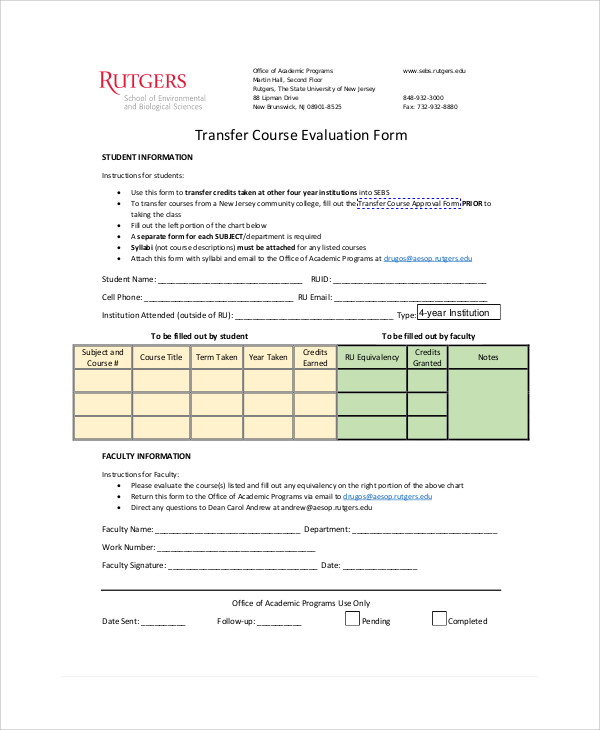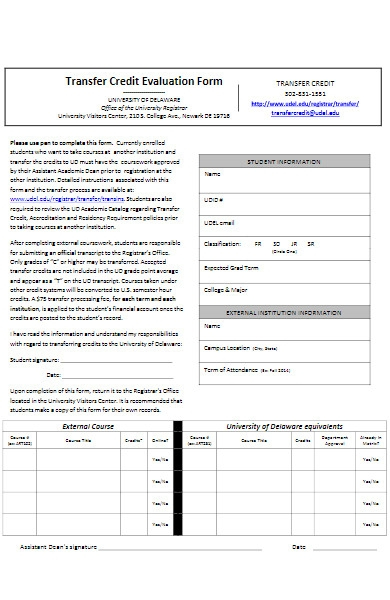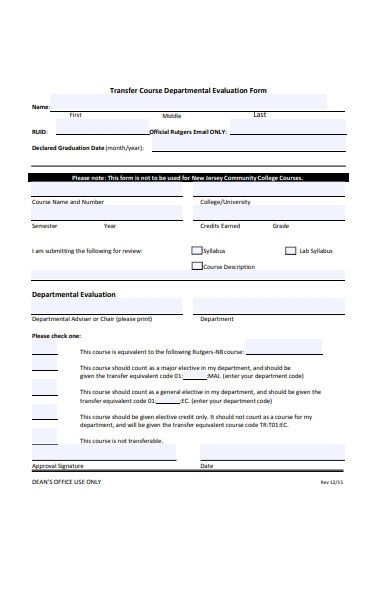Rutgers Transfer Credit Evaluation Form – If you’re unclear about the transfer process for your degree, you can complete The Transfer Credit Acquired Formula, or TCAF. There could be a course which you did not finish or haven’t received a credit for You’re wondering if you could use it to earn your degree. The good news is that you can. It is generally accepted that courses with an C or better will not require material reviews. But it’s important to know all coursework that doesn’t go to a specific U-M class is considered departmental course credit. If it’s not, you aren’t eligible to transfer it onto a U-M course and you may not be able to meet the requirements for a degree.
The coursework must be graded equivalent to a C – or higher.
To transfer your course you must have the grade of C or higher. In order to be eligible for transfer credit, the courses must have been completed in an accredited institution, such as the Higher Learning Commission or the Middle States Association of Colleges and Schools (MASAC). International programs are assessed per individual. Official transcripts must be given to the CCS. Your previous institution must accept the courses.
To transfer credit from your former college, courses completed at a foreign school need to have been graded at least C or better. Not all grades, including Pass/Satisfactory, are transferable, nor is developing coursework, college algebra or career and technical courses. However the policy has been updated during the COVID-19 disease, and courses completed prior to that are now accepted.
To be eligible for transfer credit, the courses taken at regionally accredited institutions should have been graded with a or grade “C” or better in the previous institution. In order to transfer credits it is necessary that the courses be comparable in scope and quality. While a C grade is the minimum required for credit that can be transferred Some institutions will accept the grades “D” or higher. Accreditation bodies include that of Middle States Association of Colleges and Schools and the New England Association of Schools and Colleges as well as the Northwest Association of Schools and Colleges, and the Southern Association of School and Colleges.
TCEL lists courses that have transferred to Clemson before. It is not a complete list . Any courses not listed in this list will have to be evaluated when you apply to Clemson. The TCEL listing also lists some course equivalents, but the list does not reveal differences in the amount of credits awarded between institutions. In addition, while the TCEL list courses that are comparable to those offered at other institutions but the Office of Admissions’ evaluations are based on current information.
While the previous coursework might be acceptable in some cases, it is crucial to consider its academic consequences. If you’re struggling to complete the necessary course work Consider retaking the course. You must earn at the very least a “C” in the course and fulfill any rules required by the university. If you take a course more than three times can impact your cumulative GPA, so be careful when you’re deciding to repeat the course.





